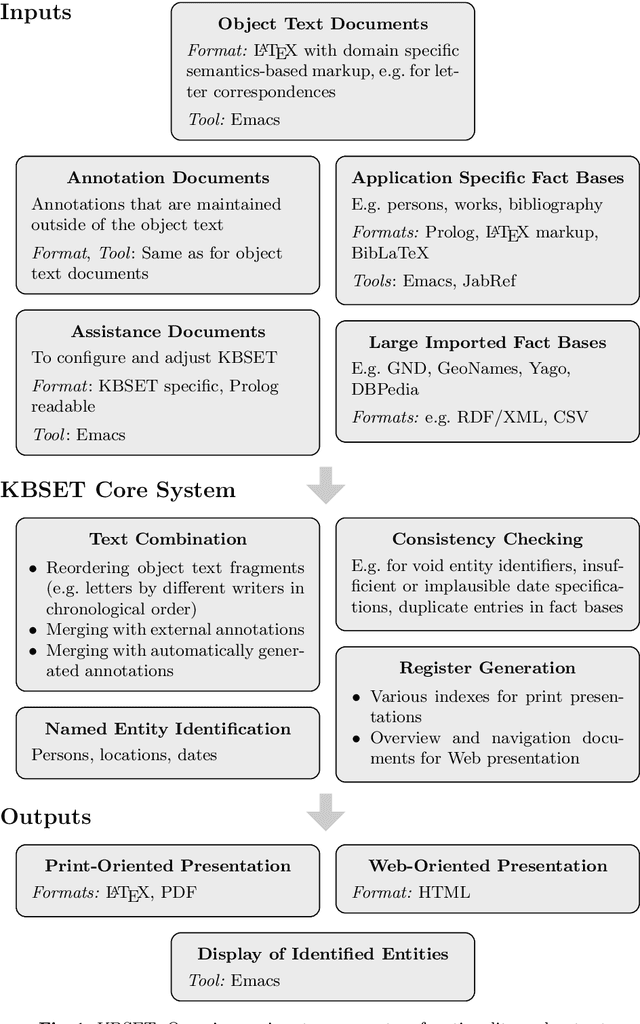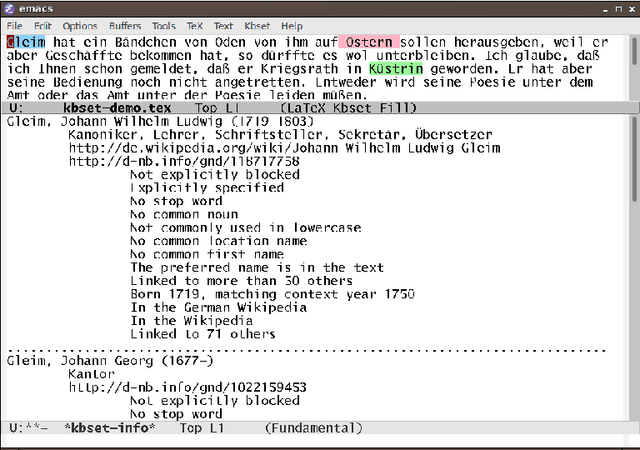Jana Kittelmann
KBSET -- Knowledge-Based Support for Scholarly Editing and Text Processing with Declarative LaTeX Markup and a Core Written in SWI-Prolog
Feb 24, 2020

Abstract:KBSET is an environment that provides support for scholarly editing in two flavors: First, as a practical tool KBSET/Letters that accompanies the development of editions of correspondences (in particular from the 18th and 19th century), completely from source documents to PDF and HTML presentations. Second, as a prototypical tool KBSET/NER for experimentally investigating novel forms of working on editions that are centered around automated named entity recognition. KBSET can process declarative application-specific markup that is expressed in LaTeX notation and incorporate large external fact bases that are typically provided in RDF. KBSET includes specially developed LaTeX styles and a core system that is written in SWI-Prolog, which is used there in many roles, utilizing that it realizes the potential of Prolog as a unifying language.
KBSET -- Knowledge-Based Support for Scholarly Editing and Text Processing
Aug 29, 2019

Abstract:KBSET supports a practical workflow for scholarly editing, based on using LaTeX with dedicated commands for semantics-oriented markup and a Prolog-implemented core system. Prolog plays there various roles: as query language and access mechanism for large Semantic Web fact bases, as data representation of structured documents and as a workflow model for advanced application tasks. The core system includes a LaTeX parser and a facility for the identification of named entities. We also sketch future perspectives of this approach to scholarly editing based on techniques of computational logic.
 Add to Chrome
Add to Chrome Add to Firefox
Add to Firefox Add to Edge
Add to Edge